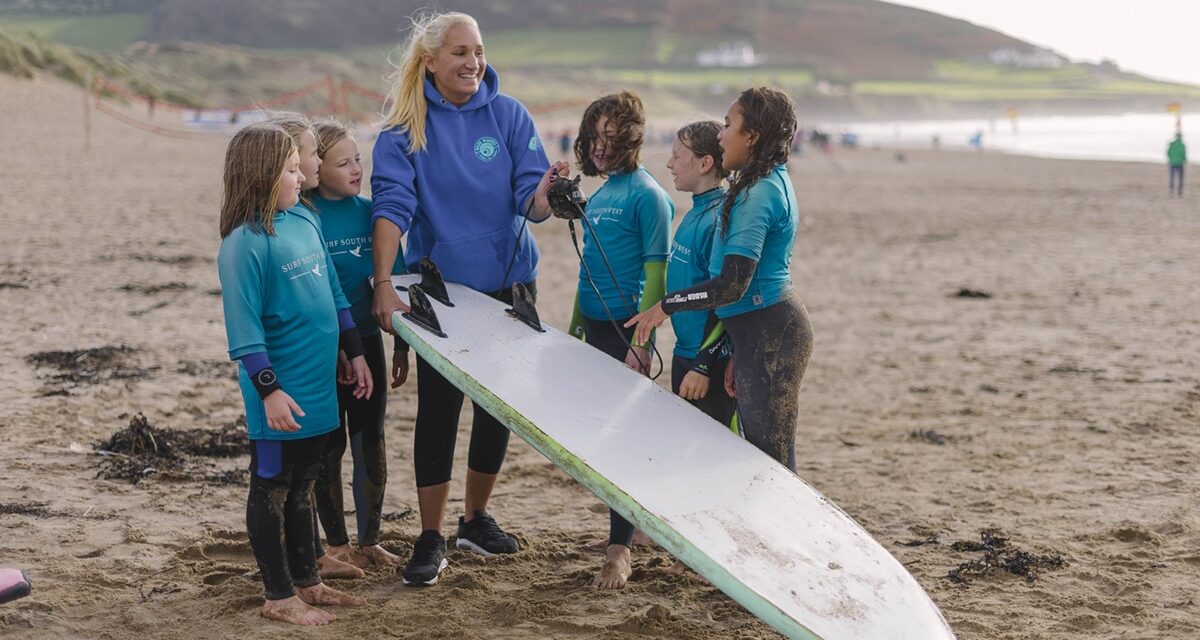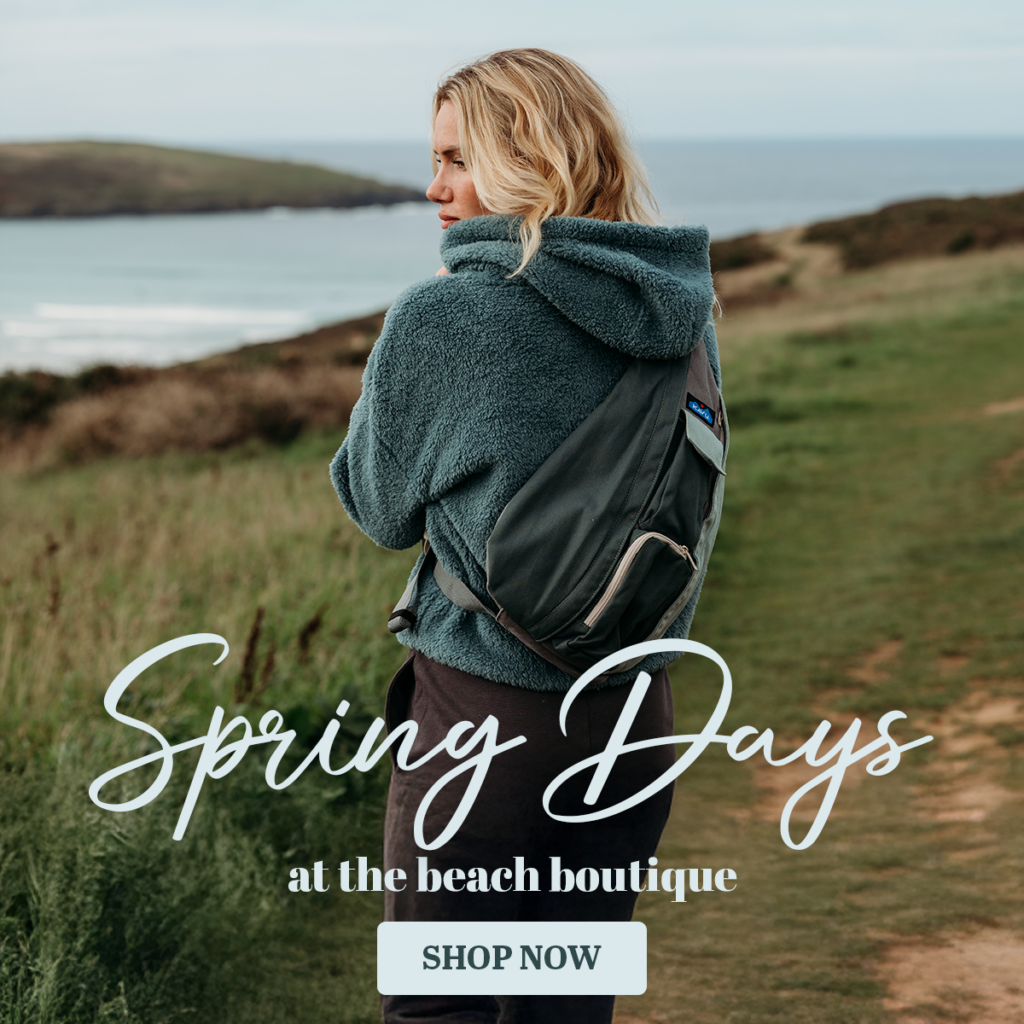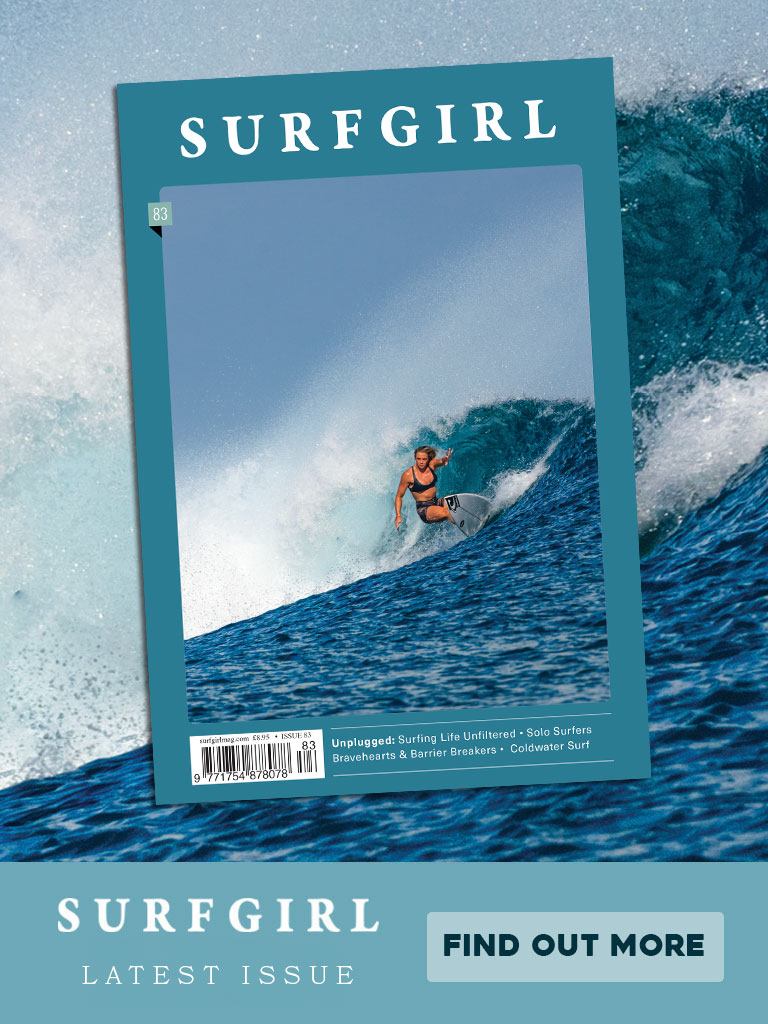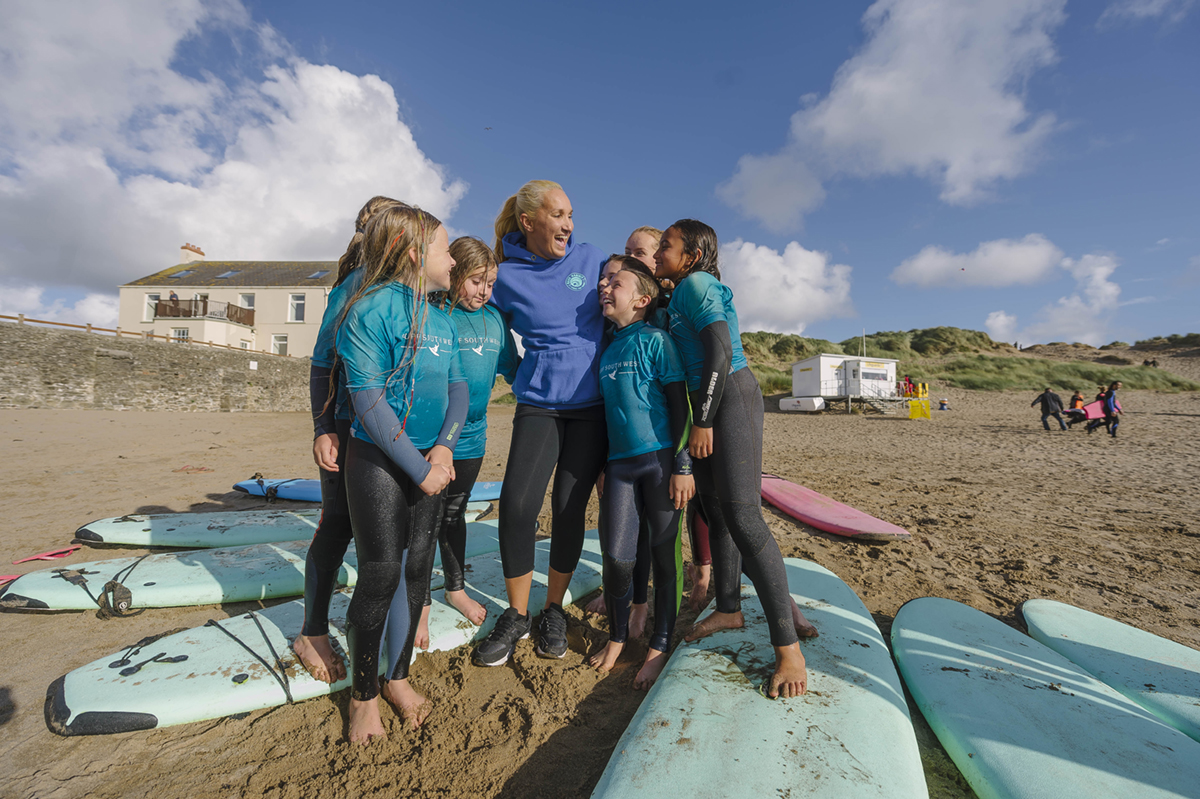

As Wave Wahine’s club founder, the core values of female empowerment, diversity in surfing and sisterhood are threaded in everything Yvette Curtis does and every organisation she works with. After the success of her groundbreaking ‘Diversity in Surfing’ survey from 2022 Yvette is back for 2025 with a survey that has more of an intersectional approach with a wider global perspective. We caught up with Yvette to find out more about the survey and how you can help.
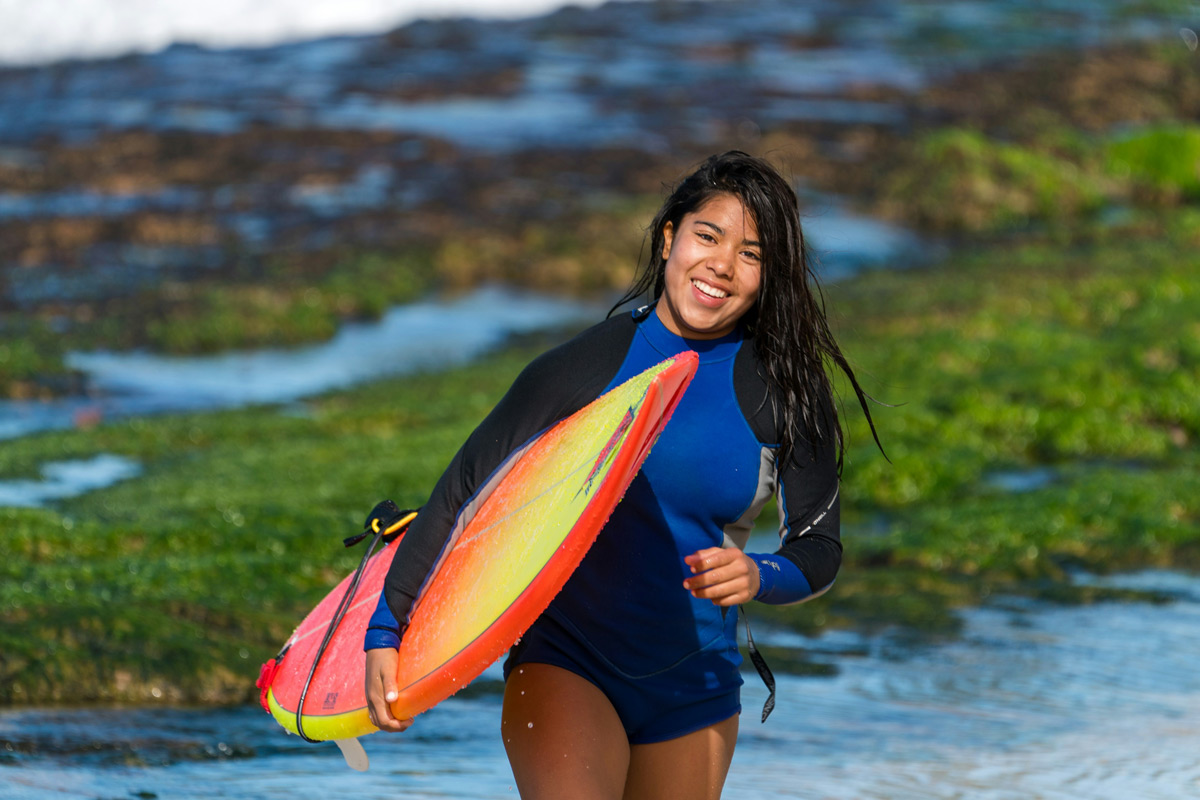

Yvette, tell me how you got involved in Wave Wahines and what the community represents in the surfing world?
I founded Wave Wahines in 2016 to support my eldest child (daughter – they now identify as transgender) to get into surfing. We recognised that girls had different barriers and drivers into sports and surfing so we created something just for them. We then created a club for women over the age of 30 and then added a group for 18-29. We now run two groups, our girls’ group which ranges 6-16 and our women’s group for over 18s but most participants are over 30 and we have regular mother and daughter pairs attending. After spending time in the sector, recognised there were few women of colour or girls from diverse ethnic backgrounds so began to run sessions for those communities in a specific way and we enabled communities of displaced Syrian girls to find surfing as part of a surf club which has been running for 4 years so far. Having seen the positive impact, the water and surfing had, I trained as a surf therapy facilitator and we began running surf therapy sessions for women living in refuge following domestic abuse. We have expanded to work with girls from urban communities in Bristol and London to run surf and ocean connection sessions and even skateboard sessions to increase people’s connection to water.
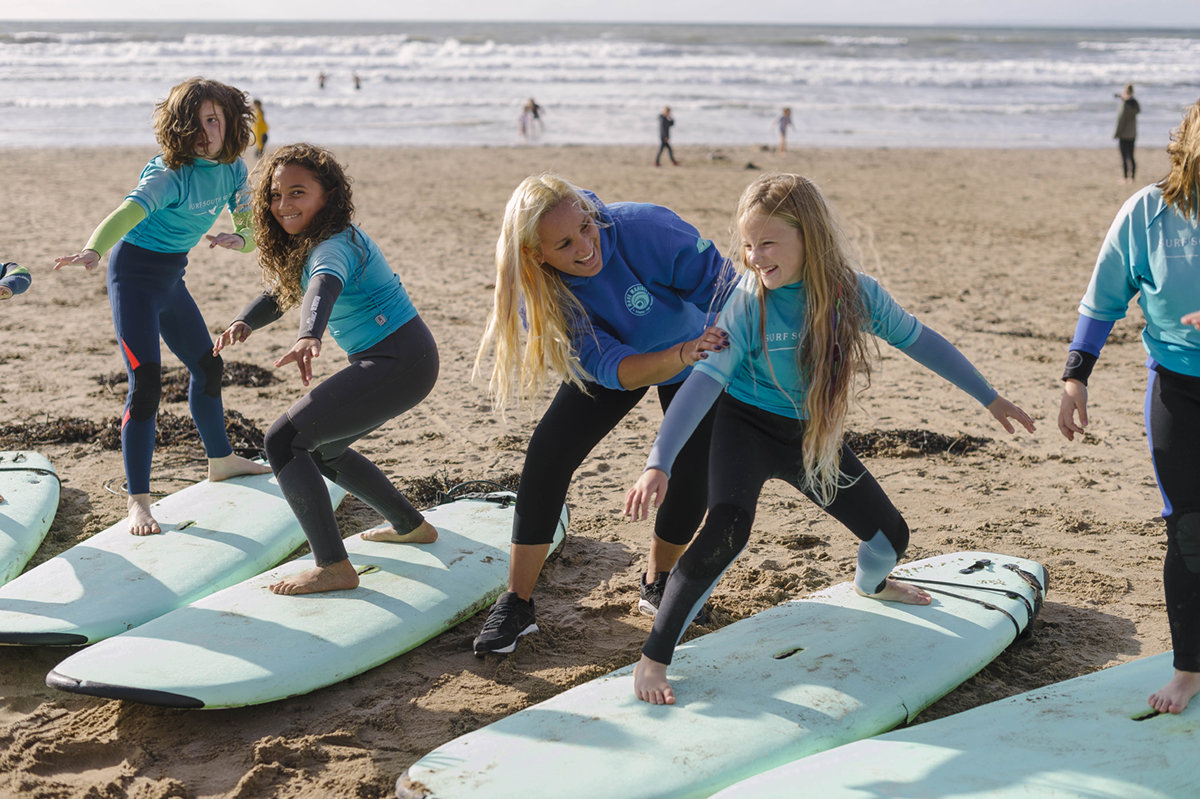
You’ve initiated programs aimed at increasing diversity over the years, what impact have they had?
Some of the feedback we have had from our surf therapy has been we have saved lives and we have given their voice back.
From our other groups the feedback has been amazing at developing safe water skills, engaging in community and nature, overcoming fear and trauma and in particular with our initial Syrian group – we had enabled carefree fun.
What do you think are the biggest barriers to entry for people from underrepresented groups who want to start surfing?
I find it is fear of something new or not being accepted, not seeing someone that reflects them in the space or sport.
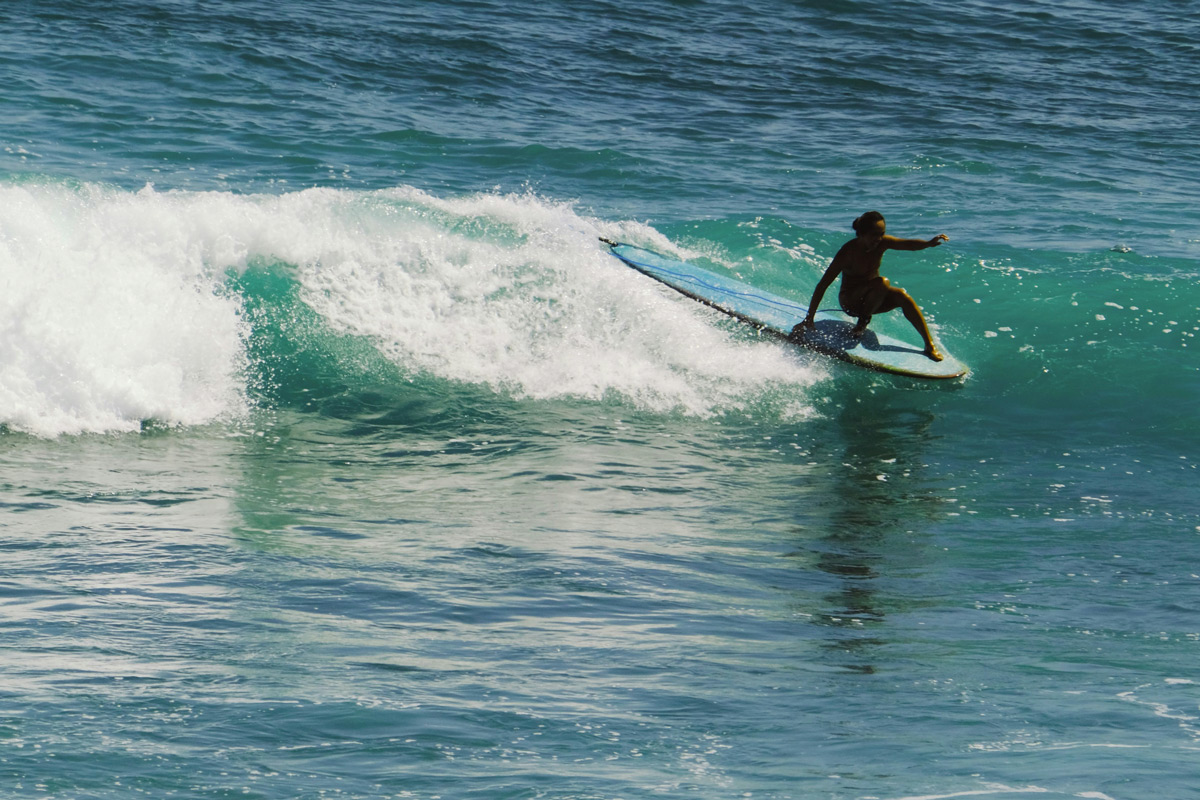
How can surf media, brands and organisations create a more inclusive environment for underrepresented groups?
I think they play a huge role in the image of surfing. Let’s face it – surfing was born in Polynesia, most famously Hawaii (and has huge history on the African continent). These are countries that are of black and brown / global majority / people of colour – whichever way you prefer to identify. They are not primarily white countries – until colonisation! Yet the surf media we are so used to seeing for most of the part definitely doesn’t reflect that heritage and has in turn created an image of white, athletic, predominantly male, straight and able bodied as it’s cookie cutter. This image is what has sold clothes, boards and lifestyles so they hold a huge power in how to show diversity. I believe that starts with their organisations, who is working in the spaces and who is taking the photos, generating the stories and then what stories are they sharing and is it in an authentic and non-extractive way…
What is your vision for the future of diversity in surfing?
That we see people that are real, relatable, that reflect our wonderful global society in all its intersecting identities. To the point – it’s no longer a big deal and when we are asked to picture a surfer in our mind, we just picture ourselves as we are all represented!
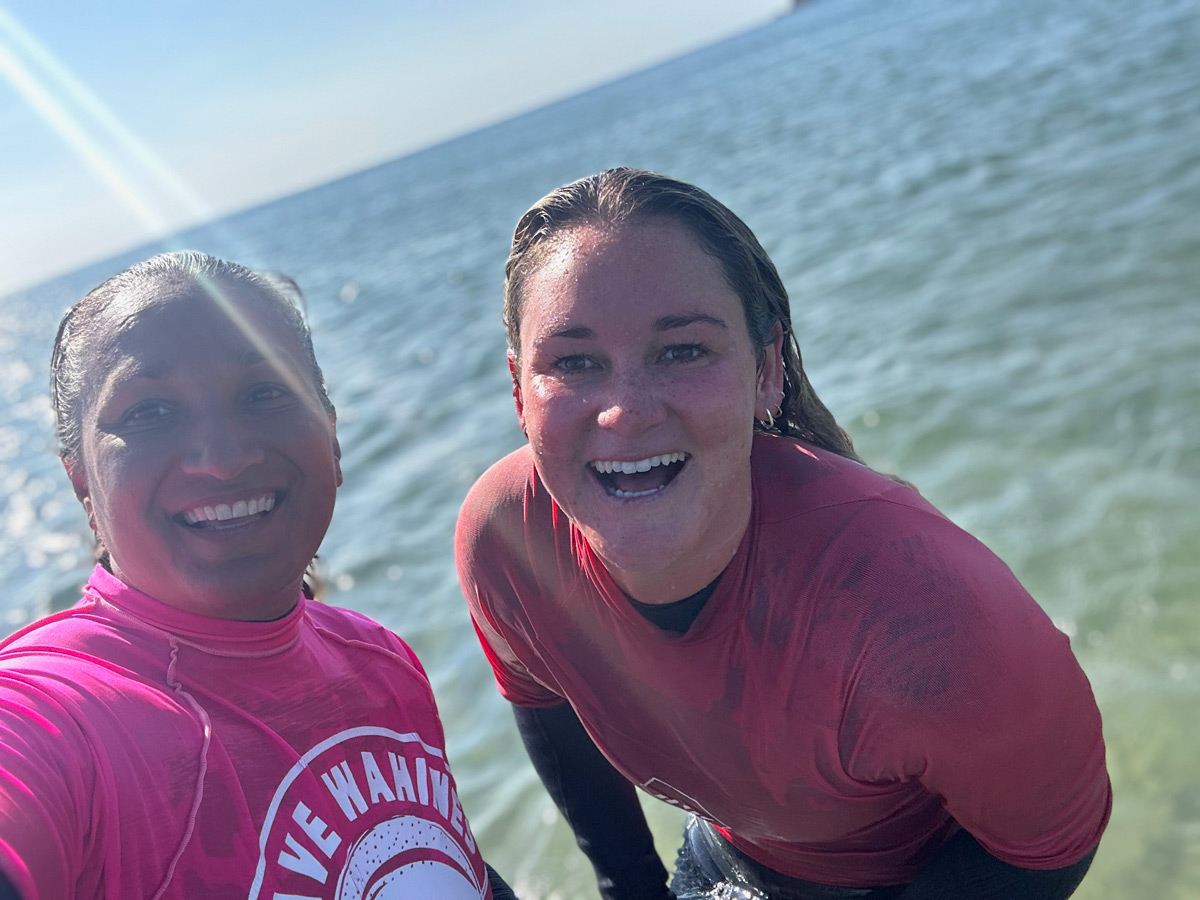
How important for everyone to do this survey, how is it going to help?
It’s so important for all communities, regardless of your relationship to surfing, to complete this survey so we have an idea of people’s experiences, their perspectives, who is engaged, who isn’t who wants to be, why are they, why aren’t they. Does it lead to wider advocacy and activism? So many important questions that can help better understand the surf and ocean space and how we are impacted by it and how we may impact it in return. The answers can help us learn what is going well, what might need improving and how can we support positive and sustainable change.
Can you tell us what the survey is about?
After the success of our groundbreaking ‘Diversity in Surfing’ survey from 2022 we are back for 2025 and this year we have expanded the survey to include a more intersectional approach and a wider global perspective.The reason behind this research is to fill a gap and to help us understand how people view surfing. This includes non-surfers, as we have a specific question around potential barriers targeted at non-surfers. If surfers also wish to answer that question – please feel free to do so, but please prefix your answer with ‘Surfer’ as there may have been barriers that you experienced at the beginning of your surfing journey or that delayed your introduction to surfing potentially too.
The survey is anonymous, however, there is the option to leave your email at the end, if you wish to remain in direct contact regarding the survey outcomes.
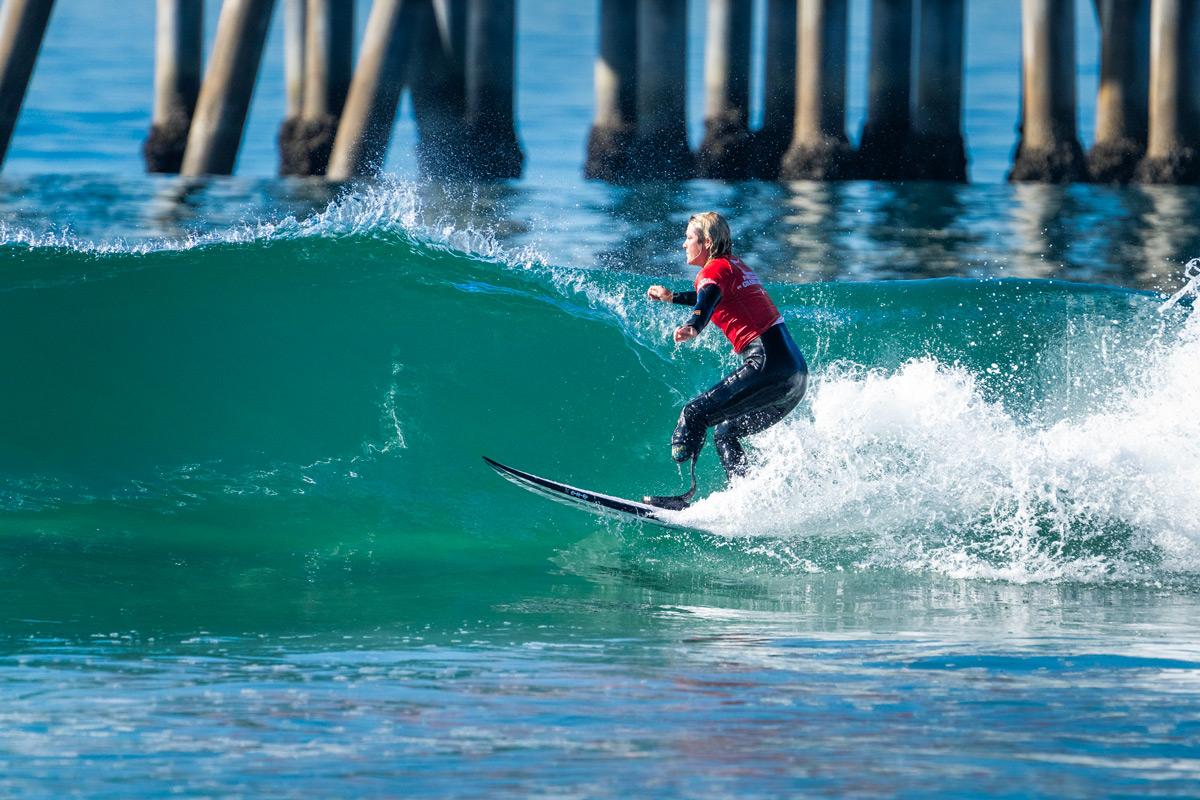
Caption Zoe Smith at the World Para Surfing Games Photo: ISA


